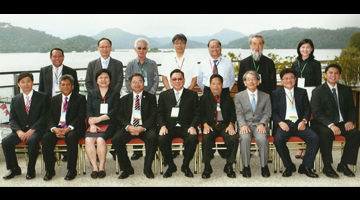 PCAARRD Executive Director Patricio S. Faylon chaired the 22nd Technical Advisory Council (TAC) meeting of the Food and Fertilizer Technology Center (FFTC) last July 8, 2014 at Nantou County, Taiwan.
PCAARRD Executive Director Patricio S. Faylon chaired the 22nd Technical Advisory Council (TAC) meeting of the Food and Fertilizer Technology Center (FFTC) last July 8, 2014 at Nantou County, Taiwan.
The meeting was meant to further firm up FFTC’s strategic plan for 2012-2016 and assess the programs and activities implemented under its action plan.
Representatives from FFTC five member countries participated in the meeting – Japan, South Korea, the Philippines, Taiwan, and Vietnam.
FFTC Director Yu-Tsai Huang welcomed the participants and gave a brief background on FFTC’s programs and activities in the Asian and Pacific (ASPAC) Region.
FFTC’s efforts are aimed at the following goals: 1) spearhead the transfer of matured technologies and information; 2) promote the sharing and exchange of information among countries; and 3) bridge the technology gaps between developed and developing countries.
Dr. Faylon led the meeting proper starting with an overview of FFTC’s strategic plan for 2012-2016 presented by Dr. Takashi Nagai, FFTC Deputy Director. This includes programs on climate change mitigation and adaptation, increased agro-trade under globalization, strengthened technology transfer for small-scale farmers, enhanced agri-extension services, and food safety and environment protection.
From 2012 to 2014, the Philippines has contributed to FFTC’s strategic mission through programs on soil nutrient management, health and disease management for citrus and banana, and agricultural technology transfer strengthening.
The TAC also discussed FFTC’s future activities, specifically, its strategic action plan for 2015-2016. This includes deliberations on strengthening the partnerships of the FFTC member countries among each other to further address current and important agricultural issues, and enhance technology transfer activities to improve the lives of the small-scale farmers in the ASPAC region.
